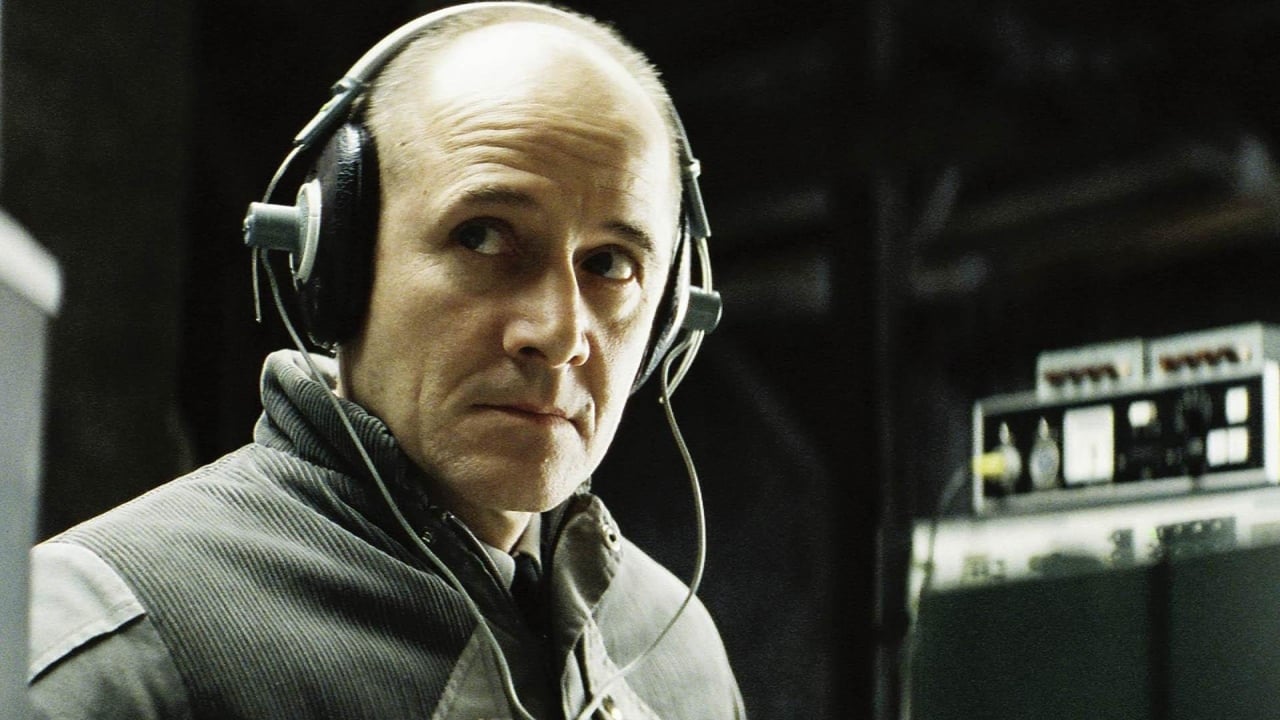hcf-72795
"Das Leben der anderen" besides giving us a quite realistic picture on the former german democratic republic, focusing on both the dictaturial regime and the routine of the artists it suported and financed, reveals the existing dicotomy in every human being. Characters who were supposed to have an established behaviour according to their social positions and status, reveal unexpected behaviours. The main character struggles with ethical questions and almost risks its life to be faithfull to what he discovers to be the right thing to do troughout the storyline.It is all in all a very coherent, moving and revealing story.
Mohamed Abdalla
A winner Oscar movie sometimes is overrated by critics or excited audience, but this is not the case here. For more than two hours,you will go in a journey of one of best dramatic & thrilling adventures of the secret police of East Germany "Stasi".The movie start with an investigation scene of a suspect by a "Stasi" officer "Gerd Wiesler", then he tries to move his ways of investigations to his students in order to be great "Stasi" officers.He will move to the surveillance of "Georg Dreyman",then the events follow in a great sequence while we are watching how the power can control each element of the society,how it can be misused to achieve personal interests and how the opinion of power holders can be wrong.The most stunning thing you will watch in the movie is the perfect acting of "Ulrich Mühe" who plays the role of "Gerd Wiesler" the "Stasi" officer, he really nailed it in every small detail in each corner of the character, his rigid non smiling face throughout the movie makes you believe he was a former "Stasi" officer.Finally, it's one of the best non-English speaking movies, it tells the story of the conflict between East & West Germany in a simple way. It's a beautiful drama/thriller movie that will not get bored watching it more than a time.
ElMaruecan82
"Beat your wife regularly, even if you don't know why, she will." I doubt the Arabs really invented that saying but it seems like every totalitarian system was based on the idea that no one can make you feel guilty without your consent. Stasi didn't spy on potentially guilty people, but people were guilty already of that suspicion. Stasi: a simple whisper of that name was enough to send shivers down the spine of millions of citizens of the German Democratic Republic. It is not even far from reality to say that the population was divided in two: those who were spied and those who spied, some could slip through the net but for how long? The Stasi used spying and intimidating methods that had nothing to envy from the way Gestapo could treat the German population, and the opening of "The Lives of Others" sets the tone.Wiesler, a Stasi agent, is giving a course. He explains to his students the virtues of keeping a prisoner awaken for forty hours, the so-called arrogance he displays will inevitably be broken. With a no-nonsense didactic tone, he reveals all these little tricks that allow the police to spot the guilt, an innocent person will shout in rage, a guilty one will weep and beg for mercy, a truth will be formulated in different ways but a lie is always made of the same lines. It is tragic that such methods existed, and even more that they sometimes worked. With cold detachment but impressive competence, Wiesler says more about the Stasi than a one-hour documentary, and from the start, the young director Donnersmarck shows a remarkable attention to small details. Notice the scene when a student questions the humanity of the methods, everyone can see Wiesler putting a cross under his name but it's not in the mark, but in the discreet and smooth way he does it and then immediately answers the question. Notice also the prisoners asked to keep his palms on the chair so that the sweat on the cushion can be used for bloodhounds, this element never serves the film but it conveys one crucial element: the Stasi has an eye for detail, and so should we, if we want to appreciate or understand what happens.This attention to detail says even more: anyone could be submitted to surveillance on the basis of suspicion, something that doesn't feel 'right'. When Wiesler is invited to see a play from writer Dreirman (Frederick Koch), all it takes is a simple look at that handsome long-haired man with an opened shirt, and a lovely woman, actress Christa-Maria (Martyna Gedeck), to suggest an investigation. Dreyman did nothing wrong but he's too well-established to be totally clean and something about his friends doesn't feel Kosher, so the Minister (Thomas Thieme) approves, moved by selfish reasons. His last feat was to forbid acclaimed author Gershka to work, when Dreirman defends his friend, the Minister denies such things happen and invites Dreyman to moderate his words.Yet Gershka is the specter of what awaits Dreyman: losing your job, your contacts and the freedom to leave the country, not that everyone wanted to leave Germany, and the height of irony is that many artists were socialists (and would never be as creative as under the totalitarian regime). The veiled threats of the Minister, the situation of Gershka and the relative comfort bourgeois Dreirman lives in, are so many parameters to take into consideration, it's all about choices that jeopardize your life, it's a choice he has to make, and in the movie, choices are often driven by fear. It is very interesting that the biggest "thrills" of the film come from situations where we fear for the protagonists, so we have a taste of what life under this regime was.But what makes the story so unique is that we have two persons who couldn't have been more opposite. Dreyman represents life, conflicts, torments, problems with his work, friends, life, courage or lack of, while Wiesler is a professional agent: he's alone, all dressed in gray, has sex with prostitutes, it is like his existence has been totally dedicated to his job, but by following the daily life of Dreyman, a strange juxtaposition of feelings occurs, he starts to discover a strange one some would call "empathy". The film then becomes a character-study about a man who supposed to study people and we witness his slow but progressive coming-to-realization on the tragedy that people live. There's a magnificent scene with a little boy that shows how Wiesler's foundations are being shaken, for the best.Now, what is exactly "Lives of Others" about? Some would suggest that it is the intrusions into people's private lives and the lessons for today's generations, why are we so content to share our opinions and private lives on social media while they can backfire at us? And what lessons can the free world give when the threats of aggression from the exterior are always served as excuses to intrude into people's private lives? Recently, my Facebook account was blocked because I used a nickname, I'm supposed to send them an ID card to have my account back, that alone gives me an idea of how deeply attached to my privacy I am. Perhaps the worst aspect of the Stasi is that it is somewhat relevant today, in this post-9/11 world.Or maybe the film is simply about goodness and humanity? About the fact that a malevolent presence can as well become a guardian angel, because it takes to get deeper in people's lives, to feel their flaws and weaknesses to realize the extent of the harm... On many levels, the film is inspirational and no one can't resist to the ending, a magnificent visual epitaph from Ulrich Muhe who sadly passed away one year after the film, but whose performance enriched the lives of the "others" that we -movie lovers- are.
Lauren
For those who love history, this movie is for you. As a college student in the United States I only knew about the DDR from what I had learned in history classes and the little I learned from traveling in Europe. I could never fully imagine the effects that the wall and the Stasi had on the people of Germany. Das Leben der Anderen gives an outsider an inside look as to what East Germany was like. Wiesler is a Stasi captain who has been assigned to monitor Georg Dreymann, a German playwright who is trying to get support for his friend Jerska who has been blacklisted by the German government. Wiesler bugs Dreymann's apartment, and he is soon thrust into the world of the writer. Though this starts out as a simple mission, Wiesler begins to see how the government has affected these people. He begins to care about Dreymann, especially towards the end of the movie. One of the main arguments that is brought to attention in the film is that people never change. Obviously that is not true. The most significant change throughout the film is Wiesler. He doesn't view his job as a simple mission anymore. He has to protect the people that he has grown to care about, even if it ends up costing him his job. The film shows that people can change. Wielser is always associated with the color gray, a very neutral color. This shows that not everything can be black and white. One must dig deeper to see the true nature of people. It shows the darkness that was within Germany, parts that those who didn't live in the time may not fully understand until seeing the film. I think everyone should see this film because it brings history to life. There are so many layers to every aspect of this film. Each time you watch you can find something new that you didn't notice before. It truly makes you think.


 AD
AD






